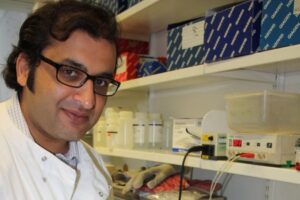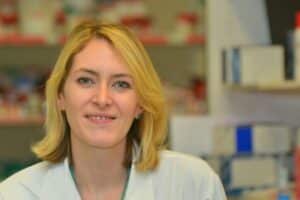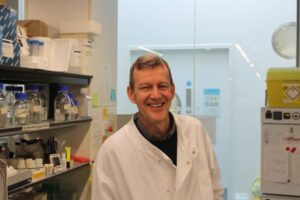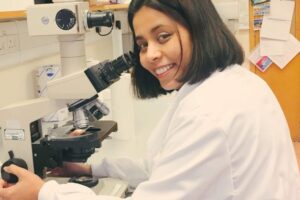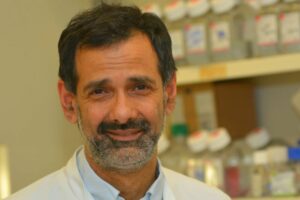Research
Developing targeted CAR T-cell therapy for hard-to-treat Acute Myeloid Leukaemia
Identification of novel surface antigen targets for CAR T-cell strategies in paediatric acute myeloid leukaemia stem cells.
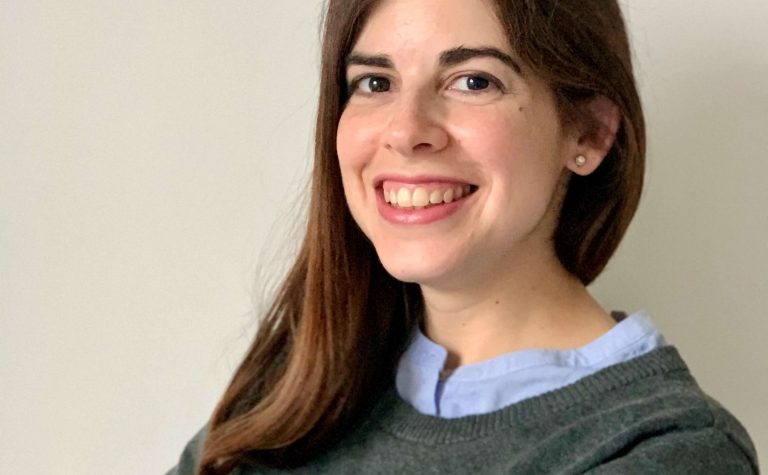
Project Details
- Identification of novel surface antigen targets for CAR T-cell strategies in paediatric Acute Myeloid Leukaemia stem cells
- Lead Researcher
- Dr Macarena Oporto Espuelas
- Research Centre
- UCL Great Ormond Street Institute of Child Health
- City & Institution Postcode
- London, WC1N 1EH
- Start Date
- 26 September 2020
- Project Duration
- 36 months
- Grant Amount
- £219,999.99
Overview
Acute myeloid leukaemia (AML) is a rare type of childhood leukaemia. It is caused by the body overproducing myeloid cells, a type of white blood cell. CAR T-cell therapy is an exciting new type of cancer treatment. It works by instructing T cells from the body’s immune system to attack cancer cells that display a particular molecule on their surface. Research into CAR T-cell therapy so far has done an incredible job in improving survival rates for some cancer types, such as the more commonly occurring acute lymphoblastic leukaemia (ALL). However, right now there isn’t an equivalent CAR T-cell therapy for AML, which is more difficult to treat this way. One of the reasons for this difficulty is that AML cells do not all look alike. This means that a CAR T-cell therapy that targets only one molecule might not kill all the AML cells. In addition, the stem cells in bone marrow, which produce our blood, can look similar to AML cells. This means that a CAR T-cell therapy for AML might attack these healthy stem cells, which could cause devastating side effects. Dr Macarena Oporto Espuelas aims to develop a new type of CAR T-cell therapy for relapsed or treatment-resistant AML that recognises and kills more of the cancerous cells while leaving more the healthy stem cells unharmed. She will analyse the gene activity of different AML cells to identify up to three targets that are present in AML cells, but not healthy stem cells. This will allow her to engineer T cells that seek out these targets in combination. Using a combination of targets helps the T cells to recognise and kill more AML cells without mistaking healthy stem cells as cancerous.
What difference will this project make?
CAR T-cell therapy is a type of immunotherapy that uses the body’s own immune system to find and kill cancer cells. Unlike chemotherapy, which typically attacks all fast-growing cells, CAR T-celltherapy tries to only target cancer cells, leaving most healthy cells unaffected. CAR T-cell therapy has been particularly successful in treating children with ALL, however, for some other cancers progress has been slower. Right now, there isn’t an equivalent CAR T-cell therapy for childhood AML. The five-year survival rate for this cancer is around 70% and has improved little in the past twenty years. Furthermore, the treatments that are available can have gruelling and long-lasting side-effects. If successful, Dr Macarena Oporto Espuelas’ research could develop a new CAR T-cell therapy for relapsed and hard-to-treat AML that is more effective and less toxic than existing treatments. This would increase survival, quicken recovery and improve long term health for young patients.
About the Research Team
Children with Cancer UK’s Clinical PhD Studentships are provided to develop and support future leaders in clinical cancer research. Dr Macarena Oporto Espuelas completed her medical degree at the Autonomous University of Madrid, Spain, before training as a paediatrician at the Niño Jesús University Children’s Hospital, one of the leading centres in Spain, while focusing on her interest in haematology and oncology. She has since worked at Great Ormond Street Hospital (GOSH) as a clinical fellow in haematology, oncology and bone marrow transplant. Dr Oporto Espuelas’ research will be supervised by Prof. Persis Amrolia and based at the UCL GOSH Institute of Child Health (ICH), which has pioneered CAR T-cell therapy for children in Europe and boasts a world-class programme of laboratory, translational and clinical research in CAR T-cell therapy for paediatric ALL and neuroblastoma. Prof. Amrolia is Professor of Transplantation Immunology at the ICH and is an Honorary Consultant in Bone Marrow Transplant at GOSH. His CARPALL clinical trial, funded by Children with Cancer UK and GOSH Children’s Charity, investigated a new CAR T-cell therapy, designed to target cancer cells more quickly and cause fewer side effects, showed very promising results for children with previously incurable ALL. Dr Oporto Espuelas will also be co-supervised by Dr Alice Giustacchini, who is a research leader in the field of single cell transcriptomics (gene activity) in leukaemic stem cells.
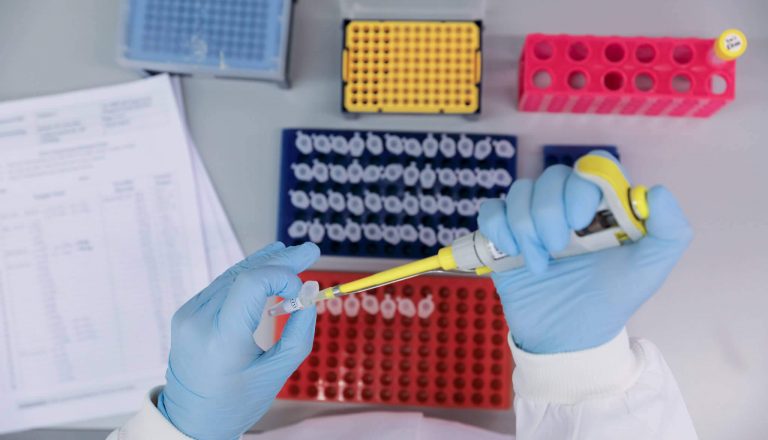
Learn more about CAR T-cell therapy
We need to find new treatments for acute myeloid leukaemia, particularly for children whose disease comes back. Dr Macarena Oporto Espuelas aims to develop a new type of CAR T-cell therapy for relapsed and hard-to-treat AML that is more effective and less toxic to young patients. Her research is funded under the Children with Cancer UK’s Clinical PhD Studentship scheme, which is provided to develop and support future leaders in clinical cancer research.
Other stories
We have lots of information to help you learn more about childhood cancer. From specific cancer types, to treatments and causes.

